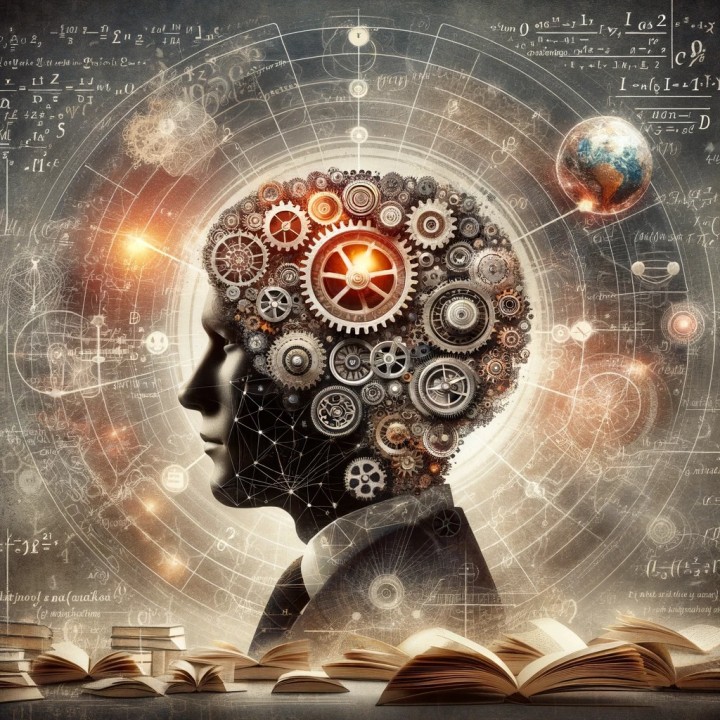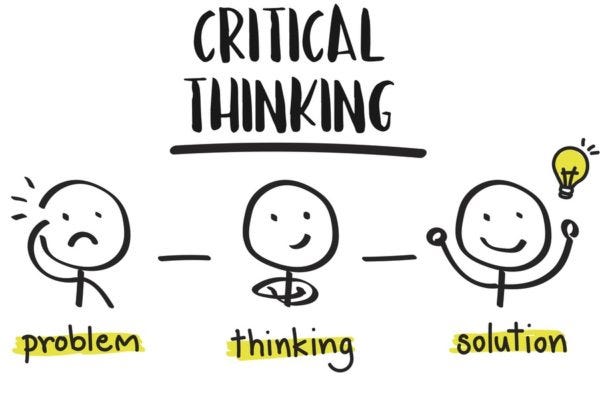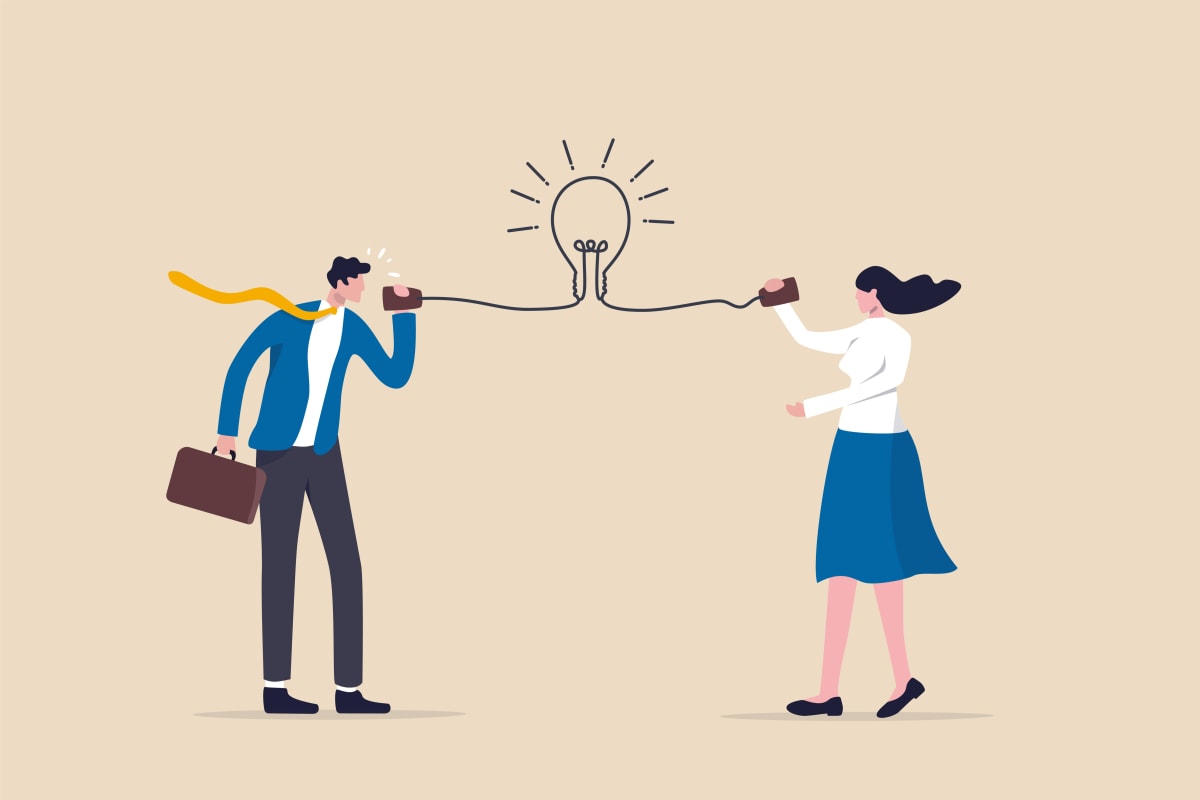The Art of Critical Thinking: Strategies for Analytical Problem Solving
In a world filled with information overload, where opinions clash and misinformation spreads like wildfire, there's a beacon of light guiding us through the chaos: the art of critical thinking. It's not just a skill; it's a superpower that empowers us to navigate the complexities of life with clarity and confidence. Welcome to the fascinating realm of critical thinking, where analytical problem-solving reigns supreme.
Defining the Art of Critical Thinking
Before we dive into the strategies and techniques that make up the art of critical thinking, let's take a moment to understand what it's all about. At its core, critical thinking is the ability to analyze, evaluate, and synthesize information to make reasoned judgments and decisions. It's about questioning assumptions, examining evidence, and considering alternative perspectives before arriving at a conclusion.
Imagine you're faced with a dilemma: Should you invest in a particular stock? Critical thinking prompts you to dig deeper. You don't just rely on hearsay or gut feelings; you scrutinize financial reports, analyze market trends, and weigh the potential risks and rewards. By approaching the problem with a critical mindset, you're better equipped to make an informed decision.
Key Aspects of Critical Thinking
Critical thinking isn't a one-size-fits-all solution; it's a multifaceted skill that encompasses various elements. Let's explore some of the key aspects that define the art of critical thinking:
1. Questioning Assumptions:
Critical thinkers don't take things at face value. They interrogate assumptions, challenging the status quo and seeking to uncover hidden biases or flawed reasoning.
2. Analyzing Evidence:
In a world flooded with information, distinguishing fact from fiction is crucial. Critical thinkers carefully evaluate evidence, scrutinizing sources and verifying the credibility of information before drawing conclusions.
3. Considering Alternative Perspectives:
One of the hallmarks of critical thinking is the ability to see beyond one's own viewpoint. By considering alternative perspectives, critical thinkers gain a broader understanding of complex issues and avoid falling victim to confirmation bias.
4. Problem-Solving Skills:
At its core, critical thinking is about solving problems. Whether it's tackling a mathematical equation or addressing a societal issue, critical thinkers approach challenges with creativity, logic, and perseverance.
5. Effective Communication:
Critical thinking goes hand in hand with effective communication. It's not just about having strong opinions; it's about articulating your thoughts clearly and persuasively, while also being open to feedback and dialogue.
Relevance of Critical Thinking in Today's World
In an era dominated by fake news, echo chambers, and misinformation campaigns, the importance of critical thinking cannot be overstated. Here are just a few reasons why honing your critical thinking skills is essential in today's world:
1. Navigating Information Overload:
With the rise of the internet and social media, we're bombarded with information from all sides. Critical thinking helps us sift through the noise, separating fact from fiction and making sense of the overwhelming barrage of data.
2. Combatting Misinformation:
Fake news spreads like wildfire in the digital age, posing a significant threat to society. Critical thinkers are equipped with the tools to discern truth from falsehood, empowering them to combat misinformation and make informed decisions.
3. Fostering Innovation:
In an increasingly complex and interconnected world, innovation is key to solving the challenges we face. Critical thinking fuels innovation by encouraging us to question the status quo, think outside the box, and approach problems from new angles.
4. Enhancing Decision Making:
Whether it's in the boardroom or the ballot box, effective decision-making is essential. Critical thinking equips us with the skills to weigh evidence, consider multiple perspectives, and make sound judgments, leading to better outcomes in both our personal and professional lives.
Insights and Anecdotes: Unveiling the Power of Critical Thinking
Now that we've explored the theoretical underpinnings of critical thinking, let's dive into some real-world examples to illustrate its power in action.
Consider the case of Allan, a high school student tasked with writing a research paper on climate change. Instead of blindly accepting the first sources he finds online, Allan applies critical thinking skills to evaluate the credibility of each source, cross-referencing information and consulting experts in the field. The result? A well-researched paper that earns him top marks and garners praise from his teacher for his rigorous approach.
Or take the story of Maria, a marketing executive faced with a dilemma: Should her company invest in a flashy advertising campaign or focus on building organic engagement with customers? By applying critical thinking principles, Maria conducts a thorough cost-benefit analysis, weighing the potential return on investment against the long-term benefits of cultivating authentic relationships with customers. In the end, her strategic approach pays off, leading to increased brand loyalty and customer satisfaction.
Conclusion: Embracing the Art of Critical Thinking
As we wrap up our exploration of the art of critical thinking, I hope you've gained a newfound appreciation for this invaluable skill. In a world where misinformation runs rampant and complex problems abound, critical thinking serves as a beacon of clarity and reason. By questioning assumptions, analyzing evidence, and considering alternative perspectives, we can unlock the power of analytical problem-solving and navigate the complexities of life with confidence.
So, the next time you're faced with a challenging decision or confronted with conflicting information, remember the principles of critical thinking. Approach the problem with an open mind, ask probing questions, and rely on evidence and reason to guide your thinking. In doing so, you'll not only become a more effective problem solver but also a more informed and engaged citizen of the world.
Intrigued by the art of critical thinking? Dive deeper into the subject and explore the myriad strategies and techniques that can help you sharpen your analytical skills. Whether you're a student, a professional, or simply a curious individual seeking to make sense of the world, the journey of critical thinking awaits. So, embrace the challenge, and unlock the power of your mind.








Comments
Post a Comment